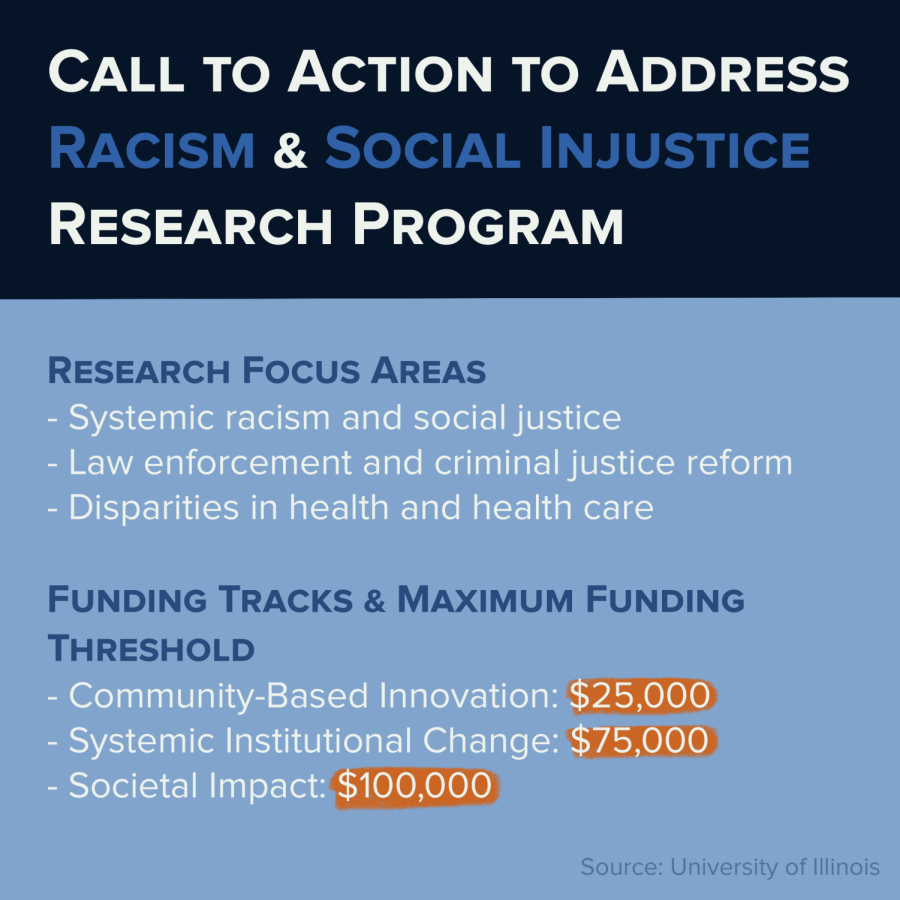University launches Call to Action research program
Apr 1, 2021
Chancellor Robert Jones announced the upcoming applications for the new annual Call to Action Research Program via Massmail on March 18.
The program will fund academic research to further the understanding of systemic racism and generational racial disparity, according to the Office of Diversity, Equity and Inclusion’s website.
The program is part of the University’s Call to Action to Address Racism and Social Injustice, which was announced in July 2020.
“The events of the … past 18 months to two years have really made us think, ‘Okay, let’s make sure we actually act. We don’t simply discuss, discuss and discuss, but let’s act’,” said Sean Garrick, vice chancellor for Diversity, Equity and Inclusion.
Each year, the program will have specific research areas. This year’s focus is systemic racism and social justice, law enforcement and criminal justice reform and then disparities in health and health care.
“(They are) just issues of the day that aren’t specific to, in my opinion, to any one person or any one group, but really speaks to some of the big challenges facing our society,” Garrick said. “The hope is that these subject areas will change as … we either make progress or as more things pop up.”
The University has $2 million to allocate across research areas as well as funding tracks, including community-based innovation projects, systemic institutional change projects and societal impact projects.
Garrick hopes that the program can fund all potential projects and believes there is a “good chance” that it will. He wants to see projects across different topics and funding tracks be funded and supported.
According to the Massmail, University tenure, tenure-track and specialized faculty with appointments in any academic college or research unit are eligible to apply. Graduate students and community members can be a part of the research as well; however, it must be in collaboration with a University employee.
Pre-proposal submissions are due on April 26, which includes a two-page outline describing the applicant’s research idea, said Garrick.
“The purpose of (the pre-proposals) is to make sure that what is proposed fits our guidelines that were communicated,” Garrick said.
After a pre-proposal is approved, University and national experts will score the applicant’s full proposal based on its validity and potential societal impact.
According to Garrick, there are over a hundred people signed up to participate in the information sessions on March 30 and 31.
“Let’s actually support the people who are interested in doing the work that pertains to systemic challenges in our society,” Garrick said.






